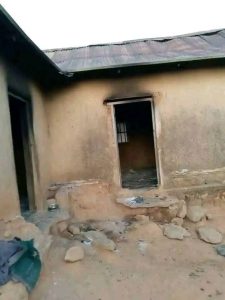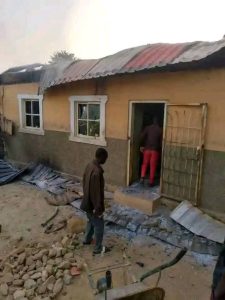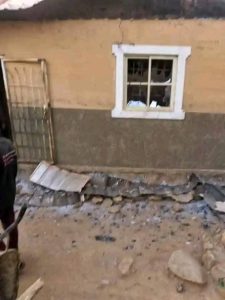A fresh wave of violence has rocked Plateau State in Nigeria’s Middle Belt, leaving at least 51 people dead and dozens more injured after armed men launched a deadly assault on Zikke and Kimakpa villages in the Bassa Local Government Area. This incident, which occurred in the early hours of Monday, April 14, 2025, comes just two weeks after similar attacks in Bokkos Local Government claimed 52 lives.
The persistent violence has once again spotlighted the long-running, deadly clashes between different ethnic and religious communities in Plateau, a region historically marred by land disputes, herder-farmer tensions, and growing insecurity.
The Attack: What Happened?

According to eyewitness accounts and community leaders, the latest attack began around midnight when gunmen stormed the Zikke and Kakpa communities. Residents were woken by the sound of gunfire and scrambled for safety as the attackers shot indiscriminately and set houses ablaze.
Joseph Chudu, a youth leader in the area, described the attack as well-coordinated and brutal. “It lasted for more than an hour. Many people were killed, and survivors are in urgent need of medical care. We need blood for the injured,” he pleaded.
A local vigilante team and some security personnel attempted to repel the invaders but arrived too late to prevent the bloodshed. Community leader Wakili Tongwe confirmed that while the attackers were eventually driven back, 51 lives had already been lost, and many homes were razed.
National Outrage and Condolences

President Bola Tinubu responded swiftly, expressing deep sorrow over the tragedy and condemning the incessant violence in Plateau State. In a statement issued by his Special Adviser on Information and Strategy, Bayo Onanuga, Tinubu called on Governor Caleb Mutfwang to urgently address the root causes of the communal conflicts.
“We cannot allow this devastation and the tit-for-tat attacks to continue. Enough is enough,” Tinubu declared. He emphasized the need for political will, unity, and dialogue across ethnic and religious lines.
“Beyond dealing with the criminal elements, the political leadership in Plateau must address the underlying causes of these age-long problems. These issues have plagued us for over two decades, and we must tackle them decisively.”
He also directed security agencies to thoroughly investigate the latest attack and bring the perpetrators to justice.
Governor Mutfwang’s Response

In the aftermath of the killings, Governor Mutfwang convened an emergency state security council meeting at the Government House in Jos. The governor described the attackers as over 100 militiamen who descended on the villages to “maul innocent residents.”
“We are on top of the situation and will go to any length to forestall a recurrence,” he said, while promising to provide further details in a broadcast scheduled for April 15.
Speaking previously on national television, Governor Mutfwang had stated that the attacks on Plateau were beyond ordinary communal clashes. “This is genocide, sponsored by terrorists,” he asserted. He further revealed that over 64 communities across Bokkos, Barkin Ladi, and Riyom LGAs have been forcibly taken over by bandits, who now occupy the lands after displacing the original inhabitants.
Youths Demand Action
The Berom Youth Moulders Association (BYM) has called on the Federal Government to declare Fulani militants as a terrorist organisation. In a statement signed by its President, Solomon Mwantiri, and Secretary, Bature Adazaram, the group condemned what they described as systematic and premeditated killings.
They also referred to a viral video allegedly released by the attackers, in which they vowed to make the security situation in the state unbearable. “We are saddened by the massacre, especially of women and children, with no justification known to the armless villagers,” the statement read.
The group further urged lawmakers to consider legal reforms that would allow citizens to bear arms for self-defence, arguing that communities are increasingly left vulnerable in the face of such attacks.
A Region on the Edge
Plateau State, like other parts of Nigeria’s Middle Belt, has witnessed decades of deadly inter-communal clashes. Although these are often portrayed as ethno-religious conflicts between Muslim Fulani herders and Christian farmers, experts say climate change, shrinking grazing lands, and competition for resources also fuel the unrest.
The violence has become disturbingly frequent and devastating. During Christmas celebrations in 2023, about 200 people were killed in a similar attack. In May 2024, 40 more lives were lost in Wase. These tragic events have turned entire communities into ghost towns.
Amnesty International Nigeria also weighed in, calling for an urgent investigation into the security lapses that enabled such repeated carnage. “The inexcusable security failures must be addressed. Communities cannot continue to live in fear,” Amnesty stated.
Federal Government’s Tough Talk
In reaction to the recent attacks, the Inspector General of Police (IGP), Kayode Egbetokun, has ordered the comprehensive deployment of police tactical teams to the affected areas. The government also reaffirmed its commitment to supporting Plateau State in its efforts to restore peace through dialogue, social cohesion, and justice.
The Road Ahead
While the government has promised to take action, residents in Plateau State are still grieving, still afraid, and still waiting for real change. The cycle of violence, displacement, and impunity has left scars on communities and strained the nation’s fragile unity.
For peace to return, observers agree that more than military deployments are needed. There must be honest conversations about land use, justice for victims, and accountability for attackers. Only then can Plateau—and Nigeria—begin to heal.
Photo’s from Channelstv.com
For more news: Decode.ng



























































